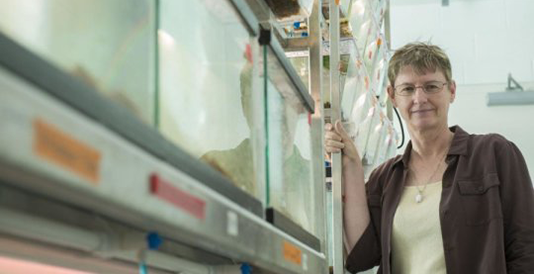 September 2, 2015 - A new Florida State University study is giving researchers a glimpse at how organisms from fish to flowers to tumors evolve in response to rapid environmental change. The findings could have a broad ripple effect on a number of research areas, including climate change and cancer treatment. And it's all because of guppies.
September 2, 2015 - A new Florida State University study is giving researchers a glimpse at how organisms from fish to flowers to tumors evolve in response to rapid environmental change. The findings could have a broad ripple effect on a number of research areas, including climate change and cancer treatment. And it's all because of guppies. FSU Professor of Biological Science Kimberly Hughes and a team of researchers set out to find how this tiny tropical fish would evolve if they transplanted wild Trinidadian guppy fish from a stream with predatory fish into two-predator-free streams. Because guppies reproduce multiple times in a year, they were able to track three to four generations of the fish living in a predator-free zone. The findings, published today in the academic journal Nature, were staggering.
By sequencing genetic material in the guppies' brains, researchers found that 135 genes evolved in response to the new environment. Most of the changes in the gene expression were internal and dealt with a fish's biological processes such as metabolism, immune function and development. But more importantly, the immediate response of genes to change in the environment did not reflect the eventual evolutionary change. Genes can change their activity levels in an immediate response to the environment -- what evolutionary biologists call plasticity -- or in an evolutionary response that occurs over many generations. What Hughes and her colleagues found was that the evolutionary change in gene activity was usually opposite in direction to the immediate plasticity of gene activity. A gene that had changed in response to drastic change in the environment would then evolve in the opposite direction after a few generations.
FSU Press Release
Nature Journal Article











